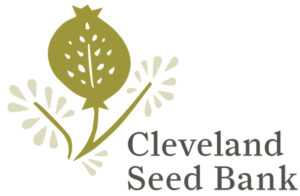 Lorain: Beginning in March 2023, Lorain Public Library System will partner with the Cleveland Seed Bank to add seed libraries to the ever-growing list of items available to patrons.
Lorain: Beginning in March 2023, Lorain Public Library System will partner with the Cleveland Seed Bank to add seed libraries to the ever-growing list of items available to patrons.
“Although we rarely think about seeds, nine out of ten bites of food we eat start with seeds,” says Chris Kennedy, Co-Founder of the Cleveland Seed Bank. “We believe that strengthening the knowledge of local food systems and cultivating the skills required for sustainable food production helps to strengthen our community environmentally, economically, and socially.”
The Columbia Branch, North Ridgeville Branch, South Lorain Branch and Main Library in Lorain will each have the same 20 varieties of organic, open-pollinated vegetable, herb and edible flower seeds and a binder that has seed-saving information and growing guides.
Open pollinated means the flowers are fertilized by bees, moths, birds, bats and even the wind or rain. The seed that forms produces the same plant the following year. Some OP plants are self-pollinators. This means the structure of the flower allows fertilization before it opens.
OP varieties are genetically diverse, so there can be a lot of variation in the plants and fruits. Since agriculture began about 12,000 years ago, people have been choosing the qualities they like in a plant, such as fruit size, flavor, growth habit, heat and cold tolerance and uniformity, saved the seed, and continually grew it out year after year. This is plant selection and can only be done with OP seed.
Most importantly, open pollinated seeds can be saved from year to year and the plants that grow the next year will be “true to type” or the same variety. Not so with hybrids. They also adapt to our northeast Ohio growing conditions so the seeds you save will be better suited to our local conditions.
While most library items are available for loan, with an expectation that the item be returned, the seeds do not come with such an expectation. “We recommend people who save seeds share with their neighbor or take to a community seed swap,” says Kennedy.
“One in five Ohioans is food insecure, meaning they do not know from where their next meal will come and lack access to enough food for an active, healthy lifestyle,” says Anastasia Diamond-Ortiz, LPLS Director. “Providing quality seed is the first step to providing access to healthy and affordable food in our communities.”
Each patron can receive up to five packets per month while supplies last. Please see a library staff member for assistance in obtaining seeds.
- Organic Genovese Basil
- Organic Provider Bush Bean
- Organic Champion Collards
- Organic Green Finger Cucumber
- Organic Ping Tung Long Eggplant
- Organic Lacinato Kale
- Organic Austral Lettuce
- Organic Salad Bowl Lettuce
- Organic Milkweed
- Organic Cascadia Snap Pea
- Organic Iko Iko Sweet Pepper
- Organic Ring-O-Fire Cayenne Pepper
- Organic New England Pie Pumpkin
- Organic Giant Winter Spinach
- Organic Brûlée Butternut Squash
- Organic Yellow Crookneck Summer Squash
- Organic Rose de Berne Tomato
- Organic San Marzano Paste Tomato
- Organic Supernova Cherry Tomato
- Organic Dark Green Zucchini
The Cleveland Seed Bank is an initiative of The Hummingbird Project, a nonprofit based in Cleveland, Ohio that works for social change through ecological regeneration and community empowerment.
The Cleveland Seed Bank was formed in 2013 to address a fundamental gap in our local food system: a regional, diverse and community-stewarded seed supply. We work toward this mission by offering events and workshops on seeds and seed saving, distributing organic, open-pollinated seed through public library systems and by leading through example through our seed stewardship.

